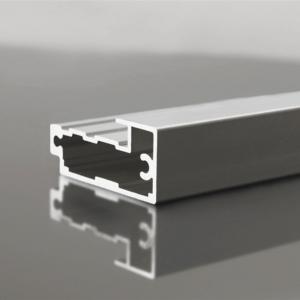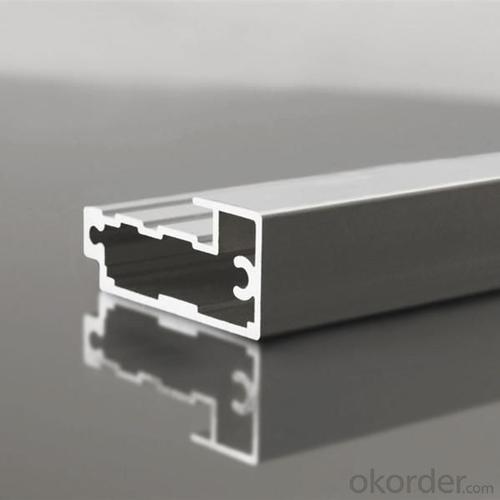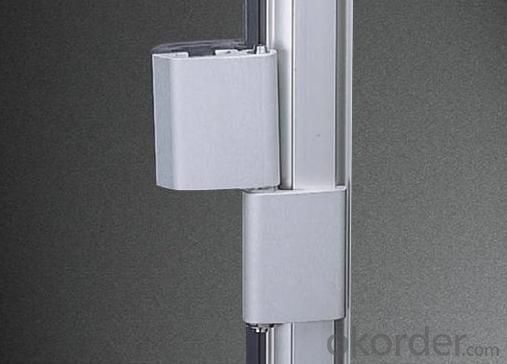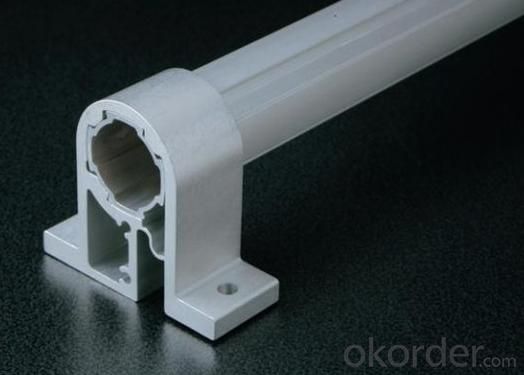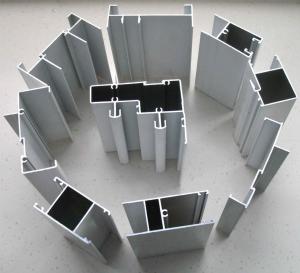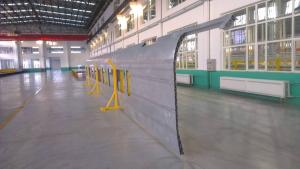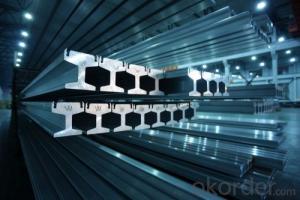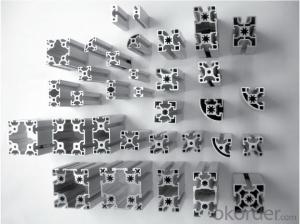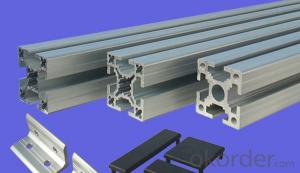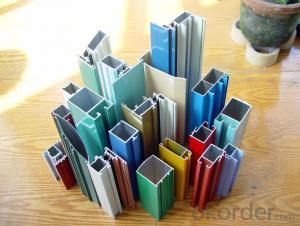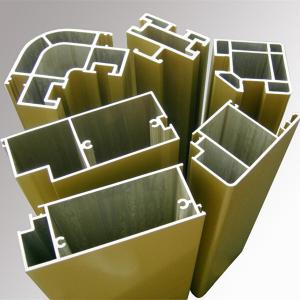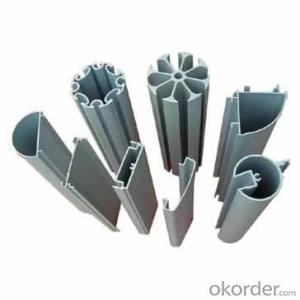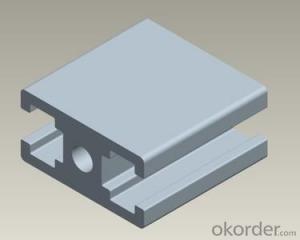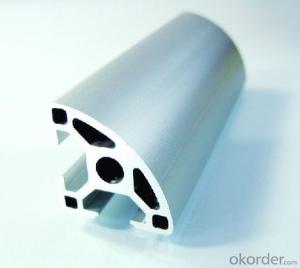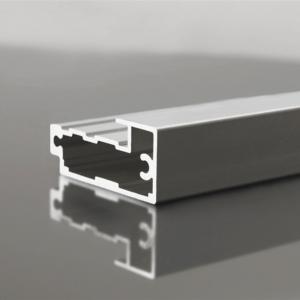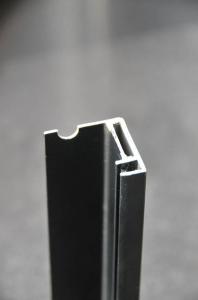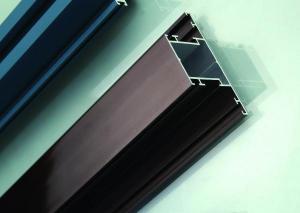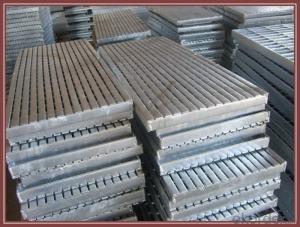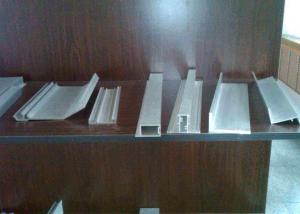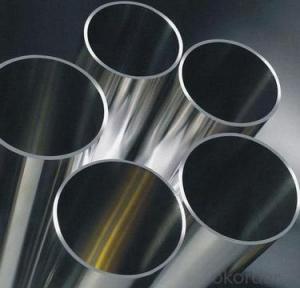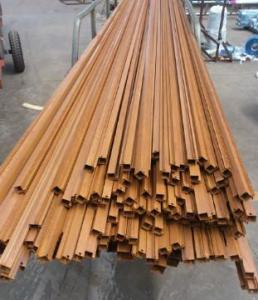Aluminum Extrusion Profiles 6060-T5 UK
- Loading Port:
- ShenZhen
- Payment Terms:
- TT or LC
- Min Order Qty:
- 10MT m.t.
- Supply Capability:
- 1000 Tons Per Month m.t./month
OKorder Service Pledge
OKorder Financial Service
You Might Also Like
1 Specifications of Aluminum Profiles 6060
Alloy Number | 6063 6061 6060 and different aluminium alloy |
Temper | T4 T5 T6 or other special status |
Surface available | Mill finish, Anodized, Powder Coating, Wooden transfering, electrophoresis, heat insulation, PVDF, and deep processing |
Thickness: | >0.8mm |
Width: | <300mm |
Standard | GB5237.1-2008 |
Special Specification is available on customer’s requirement
2 Usage/Applications ofAluminum Profiles 6060
Aluminium Profiles are widely used in construction(windows & doors,curtain wall), decoration ( flooring and tiling, kitchen) and industry ( heat sink ).
CNBM produces aluminum profiles which meets the national standard GB5237.1-2008. Our strong quality control term bring you the most-qualified products. And with state-of-the-art equipment, and the state owned company background, we have to say, you will understand why there are so many company choose CNBM to be their supplier.
3 Packaging & Delivery of Aluminum Profiles 6060
Packaging:Seaworthy package, bubble plastic bag inside, anti-moisture paper wrapped outside, covered with cartons, on wooden pallets, in containers.
Shipment:the goods will be delivered in 15-30days after getting the buyer's payment.
4 Production Flow of Aluminum Profiles 6060
aluminium ingot & alloy→melting and casting→extrusion→powder coating→pouring rubber for heat insulation→checkout→packing→PVDF coating\anodizing\electrophoresis→put in products warehouse.
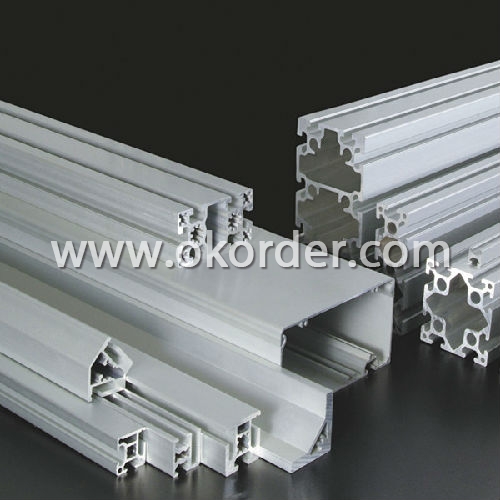
- Q: This question asks about the variety of dimensions and forms that aluminum profiles can come in.
- <p>Aluminum profiles are available in a wide range of sizes and shapes to suit various applications. Common shapes include rectangular, square, circular, and special profiles like angles, channels, and tees. Sizes can vary from thin strips to thick bars, with specific dimensions tailored to the needs of the project. The profiles can be flat, hollow, or have complex cross-sectional geometries. They are also available in different surface finishes, such as anodized, painted, or powder-coated, to enhance their appearance and durability. The selection of aluminum profiles depends on the structural requirements, design specifications, and the industry they are intended for, such as construction, automotive, or aerospace.</p>
- Q: Is it possible to utilize recycled aluminum products as an alternative to new ones to decrease environmental impact and save costs?
- <p>Yes, using recycled aluminum products is an effective way to reduce environmental impact and cost. Recycling aluminum requires significantly less energy compared to producing new aluminum from raw materials, which reduces greenhouse gas emissions. Additionally, recycled aluminum retains the same properties as new aluminum, making it a viable alternative for many applications. This practice not only conserves resources but also lowers production costs, making it a sustainable choice for both the environment and your budget.</p>
- Q: Are aluminum profiles suitable for use in roofing or wall systems?
- <p>Yes, aluminum profiles are commonly used for both roofing and wall systems due to their durability, corrosion resistance, and lightweight properties. They offer a modern aesthetic and can be easily integrated into various architectural designs. Aluminum profiles are also known for their strength and flexibility, allowing for the creation of complex shapes and structures. Additionally, they require minimal maintenance and can withstand harsh weather conditions, making them a popular choice for construction projects.</p>
- Q: Aluminum profiles and plastic doors and windows which good, what market?
- The thermal insulation and sound insulation effect of plastic steel doors and windows are better than those of aluminum profiles. Window or plain steel is better. Do not do the door, a long time to deformation. The door is not open, the aluminum door is good. This is how many doors and windows I've made
- Q: What are the different surface finishing options available for aluminum profiles?
- Aluminum profiles offer a range of surface finishing options, each with its own advantages and visual appeal. Some commonly used options include: 1. Anodizing: By creating a protective oxide layer through an electrochemical process, anodizing enhances corrosion resistance and provides various color choices. Anodized aluminum profiles are long-lasting, easy to maintain, and have a sleek, attractive look. 2. Powder Coating: This method involves applying dry powder to the aluminum profile's surface and then curing it with heat. The result is a durable, decorative finish that resists chipping, scratching, and fading. Powder coating offers a wide range of colors and can be customized for different textures and effects. 3. Polishing: Achieving a high-gloss, reflective appearance, polishing involves using abrasives and compounds to remove imperfections. This mechanical process creates a mirror-like finish, often used for decorative purposes where a shiny look is desired. 4. Brushing: By using abrasive brushes or pads, brushing creates a textured, brushed finish on the aluminum profile. This method produces parallel lines or circular patterns, providing a unique and stylish appearance. Brushed finishes are commonly used in architectural and interior design applications. 5. Electrophoretic Coating: Also known as e-coating, this immersion process involves applying an electrically charged paint to the aluminum profile. This ensures uniform coating thickness and excellent corrosion resistance. E-coating provides a smooth, even finish and is frequently used in automotive and industrial settings. 6. Wood Grain Effect: Aluminum profiles can be treated with a special coating to mimic the appearance of wood grain. This option is popular in architectural applications where the durability and low maintenance of aluminum are preferred over natural wood. These are just a few of the available surface finishing options for aluminum profiles. The choice of method depends on the desired appearance, functionality, and intended application of the profile.
- Q: How do aluminum profiles perform in terms of creep resistance?
- Aluminum profiles generally have good creep resistance due to their high strength and stiffness. They can withstand sustained loads and high temperatures over a long period of time without significant deformation. However, the creep resistance of aluminum profiles may vary depending on the specific alloy and manufacturing process used.
- Q: When will the aluminum mold be padded?
- The plane will die pad is a small pad on the inside of the die sleeve, and a large pad size is the size of the inner diameter of the sliding seat, there are generally several square and circular pad, some special structure material need professional pad, such as an open slot, the structure is not very stable, when die under high pressure are squashed requires a special pad.
- Q: Can aluminum profiles be used for curtain walls?
- Yes, aluminum profiles can be used for curtain walls. Aluminum is a popular material choice for curtain wall systems due to its lightweight, durability, and corrosion resistance. It offers flexibility in design, ease of installation, and can accommodate large glass panels, making it an ideal choice for modern architectural designs.
- Q: Is it possible to manufacture aluminum profiles in unique shapes or dimensions tailored for particular uses?
- <p>Yes, aluminum profiles can be made into custom shapes or sizes for specific applications. Manufacturers can customize aluminum profiles through various processes such as extrusion, cutting, bending, and machining to meet the unique requirements of different projects. This flexibility allows for the creation of specialized components that can be used in a wide range of industries, including construction, automotive, aerospace, and more.</p>
- Q: How do aluminum profiles perform in terms of UV resistance?
- Aluminum profiles tend to have good UV resistance due to the natural oxide layer that forms on their surface. This oxide layer acts as a protective barrier, preventing the aluminum from degrading or discoloring under prolonged exposure to UV radiation. However, the performance may vary depending on the specific alloy and surface treatment of the aluminum profile.
1. Manufacturer Overview
| Location | Guangdong, China |
| Year Established | 1991 |
| Annual Output Value | Above US$50 Million |
| Main Markets | Mid East;Eastern Europe;North America |
| Company Certifications | ISO 9001:2000;ISO 14001:2004;OHSAS 18001 |
2. Manufacturer Certificates
| a) Certification Name | |
| Range | |
| Reference | |
| Validity Period |
3. Manufacturer Capability
| a) Trade Capacity | |
| Nearest Port | Nanhai Port |
| Export Percentage | 30%-50% |
| No.of Employees in Trade Department | 21-50 People |
| Language Spoken: | English;Chinese |
| b) Factory Information | |
| Factory Size: | Above 100,000 square meters |
| No. of Production Lines | Above 10 |
| Contract Manufacturing | OEM Service Offered;Design Service Offered |
| Product Price Range | Average |
Send your message to us
Aluminum Extrusion Profiles 6060-T5 UK
- Loading Port:
- ShenZhen
- Payment Terms:
- TT or LC
- Min Order Qty:
- 10MT m.t.
- Supply Capability:
- 1000 Tons Per Month m.t./month
OKorder Service Pledge
OKorder Financial Service
Similar products
Hot products
Hot Searches
Related keywords
